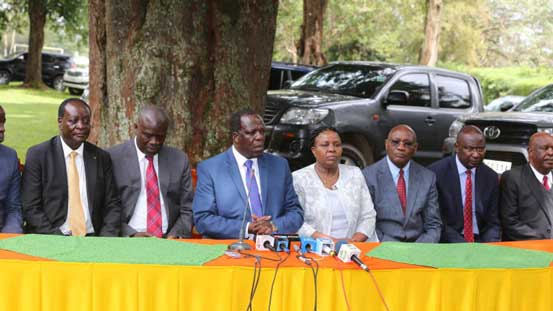×
The Standard e-Paper
Home To Bold Columnists

KISUMU, KENYA: Fourteen governors in the western region have launched an economic bloc to help spur growth.
Ten governors who attended the Lake Region Economic bloc meeting on Monday signed draft legal instruments and county assembly bills in Kakamega.